he Global Labor Organization (GLO) is affiliated with organizations and institutions with a thematic interest and a strong ambition to contribute to an effective global network and to benefit from it. There are members (with a regular financial contribution) and supporters. Institutions who wish to become supporter or member should contact the GLO President.
GLO Supporters
Abstracts about the institutions are below; links lead to their websites.
Amsterdam Institute for Advanced Labour Studies (AIAS)
Association of African Young Economist (AAYE)
Center for China and Globalization (CCG)
Centre for Migration Studies (CMS)
Centre for Workforce Futures (WWF)
Central European Labour Studies Institute (CELSI)
Chulalongkorn University, Collaborating Centre for Labour Research (CU-COLLAR)
Consortium pour la recherche économique et sociale (CRES)
Databank of the Center for Economic and Regional Studies – Hungarian Academy of Sciences (CERSHAS)
Eurasia Business and Economics Society (EBES)
Eurasian Business Review (EABR)
Eurasian Economic Review (EAER)
Eurasylum
FOM – University of Applied Sciences
GRAPE (Group for Research in Applied Economics)
Hugo Centre for Migration and Population Research
Includovate
Indian Journal of Labour Economics (IJLE)
Indian Society of Labor Economists (ISLE)
Institute for Economic and Social Research, Jinan University
Institute for Economic Forecasting (IEF)
Institute for Human Development (IHD)
Institute of Economic Policy, Università Cattolica del Sacro Cuore Milano
Institute of Global Economic Problems (Globin)
International Economic Association (IEA)
International Journal of Manpower International Network of Business & Management Journal Editors (INBAM)
ISDC – International Security and Development Center
International Summer School on Migration and Asylum (Migrationschool.eu)
Journal of Population Economics
Michael Imoudu National Institute for Labour Studies (MINILS)Migration Policy Practice
National Institute of Demographic and Economic Analysis (NIDEA)
Population, Education and Health Center (PEHC)
POP – Centre for Population, Development and Labour Economics
RePEc (Research Papers in Economics)
Society of Economics of the Household Economics
University of Kent
WageIndicator Foundation
ZBW – Leibniz Information Centre for Economics
Amsterdam Institute for Advanced Labour Studies (AIAS) 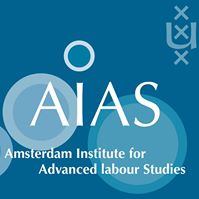
AIAS is an institute for multidisciplinary research and teaching at the University of Amsterdam. Combining insights from law, economics, and sociology, AIAS performs and facilitates research aiming at developing, empirically testing and applying theories to explain the working of labour markets, labour relations, and social policies in an internationally comparative perspective. AIAS closely works together with the WageIndicator Foundation, specifically for its data collections. The monthly Collective Bargaining Newsletter, covering all European countries, is produced by AIAS in cooperation with the ETUI. AIAS maintains the ICTWSS database with annual updated industrial relation characteristics for 48 countries from 1960 till current.
Association of African Young Economist (AAYE)
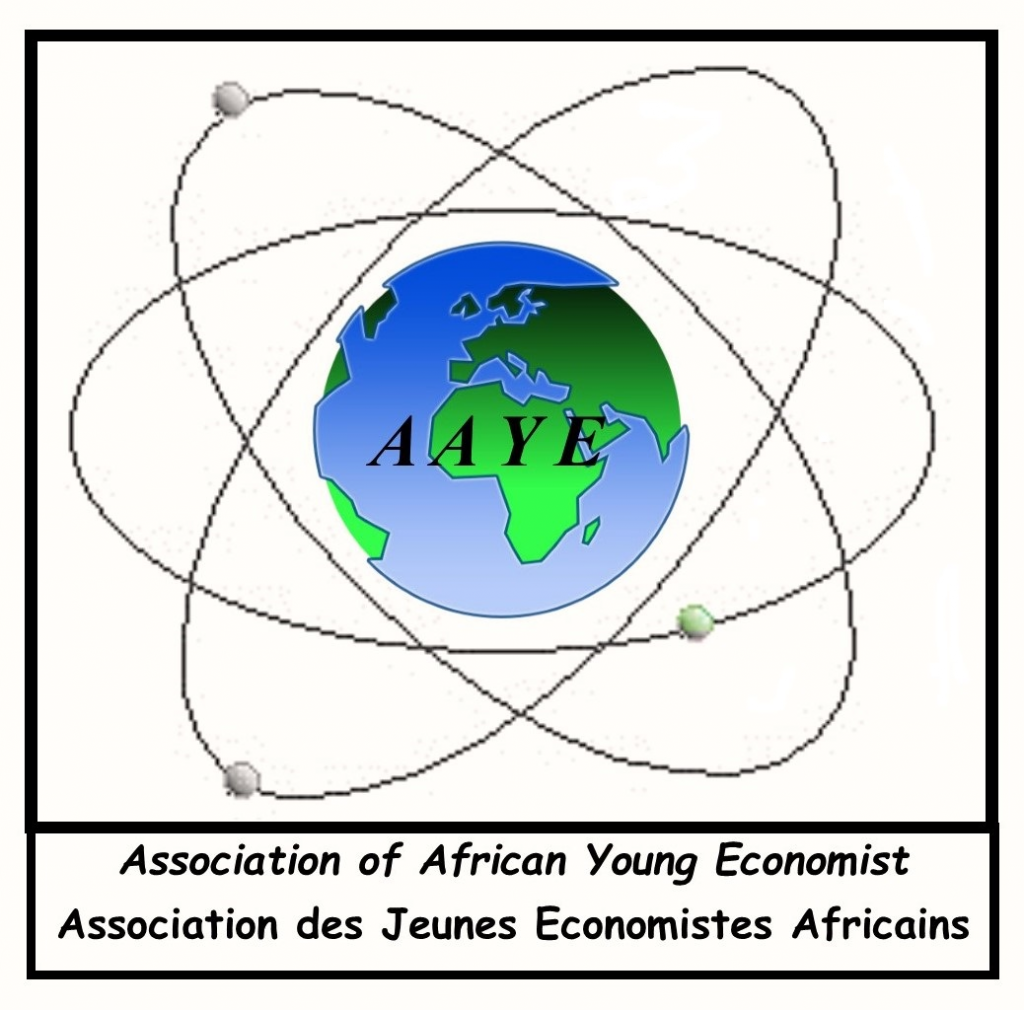
The Association of African Young Economists (AAYE), established in 2013, is a public not-for-profit organization. It aims to facilitate scientific collaboration to generate and disseminate knowledge for the development of the African continent. It operates its own discussion paper series.
Center for China and Globalization (CCG)
The Center for China and Globalization (CCG) is a leading Chinese non-government think tank based in Beijing. It is dedicated to the study of Chinese public policy and globalization. CCG’s research agenda centers on China’s growing role in the world, drawing from issues of global governance, global trade and investment, global migration, international relations, and other topics pertaining to regional and global development. CCG is a not-for-profit and non-governmental organization registered with the civil affairs system of Chinese authorities. It is independently funded by research grants and donations from private and corporate donors. For years, CCG has been ranked by the Think Tank and Civil Society Program (TTCSP) at University of Pennsylvania as one of the world’s top 50 independent think tank.
Centre for Migration Studies (CMS)
The Centre for Migration Studies (CMS) in Prague Business School is a research centre specializing in studying migration, integration, labour market inclusion of asylum seekers and international protection applicants, undeclared work and other issues related to international migration. Director of the Centre for Migration Studies is Professor Mihaela Simionescu. Prague Business School sets standards of quality by control of outstanding and highly international scientific council and by inviting highly professional lecturers having numerous academic qualifications as well as businessmen to design and maintain courses.
Centre for Workforce Futures (CWF)

The Centre for Workforce Futures at Macquarie University is a collaborative hub connecting researchers from a wide range of disciplines and universities with government, industry, not-for-profit organizations and the broader community to undertake problem-focused research and thought leadership that addresses current and future economic and social challenges relating to work, working people, work organization and employment. Directors are Lucy Taksa and Daryll Hull.
Central European Labour Studies Institute (CELSI)
Central European Labour Studies Institute (CELSI) is a non-profit research institute based in Bratislava, Slovakia. It fosters multidisciplinary research about the functioning of labour markets and institutions, work and organizations, business and society, and ethnicity and migration in the economic, social, and political life of modern societies.
CELSI strives to make a contribution to the cutting-edge international scientific discourse. In its applied research and policy analysis CELSI promotes the focus on Central and Eastern European countries. CELSI fosters intensive cooperation with internationally recognized research institutions, seeking to build a bridge between forefront international expertise and in-depth knowledge of local experts. Besides its academic competence, CELSI provides expert data services – data collection, processing and Analysis.
Chulalongkorn University, Collaborating Centre for Labour Research (CU-COLLAR)
The Collaborating Centre for Labour Research (CU-COLLAR) at Chulalongkorn University is dedicated to promoting cutting-edge labour researches to facilitate the implementation of policies, and to support the development of labour& socioeconomic data infrastructure and analysis to boost dialogues on labour research toward better wellbeing and decent work in an integrated and sustainable manner. The CU-COLLAR supports cooperation and partnership from a wide range of disciplines and universities with government, private sectors, employers’ representatives, workers’ representatives, international organizations, non-for-profit organizations at national and international levels.
Consortium pour la recherche économique et sociale (CRES)
The Consortium pour la recherche économique et sociale (CRES) was created in 2004 at the Université Cheikh Anta Diop by a multidisciplinary group of researcher-teachers. Its mission includes building research and analysis capacity in economics and the social sciences, as well as informing decision-making on social and economic questions.
CRES’ research priorities include the analysis of poverty, growth, and equality issues, local development, regional integration and globalization issues, economy of information (information and communication technologies) and economy of human resources (education, health, and population). CRES’ researchers have a long history of working closely with the Ministère de l”éducation chargé de l’enseignement primaire and the Ministère de l”économie et des finances. Their past contributions to the Education Development Program of Senegal and their subsequent ongoing involvement in the monitoring and evaluation process of this program have become a reference for policymakers. The Consortium also continues to assist the Ministère de l”économie et des finances in updating the Poverty Reduction Strategies Framework.
Databank of the Center for Economic and Regional Studies – Hungarian Academy of Sciences (CERSHAS)
The Databank (i) collects, cleans, and harmonizes the most important Hungarian repeated cross-section surveys (ii) builds big LEED panels based on administrative data, which cover up to 5 million people followed for 16 years on a monthly basis. Data on labor market and school careers, employer characteristics and state of health are available. (iii) Operates a Data Room jointly with the CSO. Researchers can work with full population and firm censuses, product-level trade data, and a register of inter-firm payments, among others. The data can be linked. Results should go through an output checking procedure. (iv) A 35 end-points laboratory is open for experiments. All the data and facilities are available for joint research with the employees of CERSHAS, and many of them are unconditionally open for the international research community.
Eurasia Business and Economics Society (EBES)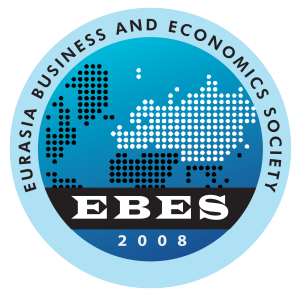
The Eurasia Business and Economics Society (EBES) was founded in early 2008 as a truly global organization. EBES brings together worldwide researchers and professionals in the areas of business and economics, encourages scholars, provides network opportunities for conference attendees to foster long-lasting academic co-operations and offers publication opportunities. In its successful work, EBES benefits from its high-ranked advisory board which consists of well-known academicians from all over the world. EBES has two academic journals which are both published by Springer: Eurasian Economic Review (EAER) and Eurasian Business Review (EABR). EAER focuses on economics and finance, while EABR deals with industry and business issues. Both journals are also supporting organizations of the GLO. In July 2018, EBES and GLO have signed a MOU about a long-term collaboration to foster research and academic exchange.
Eurasian Business Review (EABR)
The Eurasian Business Review (EABR) publishes peer-reviewed evidence-based research articles in Management Science and Applied Economics. In particular, EABR is committed to publishing empirical or theoretical articles which provide significant contributions in the fields of industrial economics, business economics, the economics and management of innovation, competition policy and antitrust, corporate governance, organizational change, finance, entrepreneurship, strategic management, accounting, marketing, human resources management, and information systems.
While the main focus of EABR is on Europe and Asia, papers in the fields listed above on any region or country are highly encouraged.
The Eurasian Business Review is one of the two official journals of the Eurasia Business and Economics Society (EBES) and is published thrice a year.
Eurasian Economic Review (EAER)
The mission of Eurasian Economic Review is to publish peer-reviewed empirical research papers that test, extend, or build theory and contribute to practice. All empirical methods – including, but not limited to, qualitative, quantitative, field, laboratory, and combination methods – are welcome. Empirical, theoretical and methodological articles from all major fields of economics and finance (including economic theory) such as microeconomics, macroeconomics, financial economics, monetary economics, money and banking, international economics, labor economics, development economics, industrial organization, managerial economics, public economics, health economics, and the like are featured in the journal.
While the main focus of EAER is on Europe and Asia, all papers from related fields on any region or country are highly encouraged.
Eurasian Economic Review is one of the two official journals of Eurasia Business and Economics Society (EBES) and is published thrice a year.
Eurasylum
Established in 2001 in the United Kingdom, Eurasylum conducts research, evaluation, technical cooperation and policy development activities in the fields of immigration, asylum and refugee policy, border management and issues of human trafficking/smuggling, internationally. Eurasylum’s activities are conducted primarily on behalf of national, regional and international public authorities. In particular, Eurasylum has been implementing a wide range of research and policy evaluation projects on behalf of several governments in Europe and in third countries; the European Commission; the European Parliament; the Council of Europe; the EU Agency for Fundamental Rights; the International Organization for Migration (IOM); the EU External Borders Agency (FRONTEX); and NATO. Eurasylum also publishes, jointly with the International Organization for Migration (IOM), Migration Policy Practice, a bimonthly journal which only contributes articles from, and which is overseen by, senior national and international public officials worldwide.
FOM – University of Applied Sciences
A university for professionals which is providing the opportunity to obtain a state-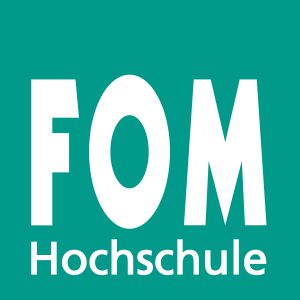 recognized university degree without having to give up work or restrict the professional activity – this has been the objective of FOM University of Applied Sciences (Hochschule für Ökonomie and Management) since its foundation in 1993. With more than 42,500 students, FOM is Germany’s biggest private institute of higher education. It has been accredited by the German Council of Science and Humanities, Germany’s most important advisory body for science policy. FOM is supported by the non-profit Stiftung BildungsCentrum der Wirtschaft. Experienced speekers from the academic world and industry give on-site lectures at 29 study centers throughout Germany. After years of joint activities, FOM & GLO have signed in 2021 a long-term collaboration agreement (MOU).
recognized university degree without having to give up work or restrict the professional activity – this has been the objective of FOM University of Applied Sciences (Hochschule für Ökonomie and Management) since its foundation in 1993. With more than 42,500 students, FOM is Germany’s biggest private institute of higher education. It has been accredited by the German Council of Science and Humanities, Germany’s most important advisory body for science policy. FOM is supported by the non-profit Stiftung BildungsCentrum der Wirtschaft. Experienced speekers from the academic world and industry give on-site lectures at 29 study centers throughout Germany. After years of joint activities, FOM & GLO have signed in 2021 a long-term collaboration agreement (MOU).
GRAPE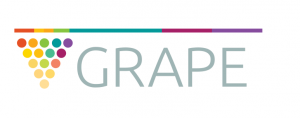
GRAPE (Group for Research in APplied Economics) is a Warsaw-based think-tank established to provide environment for high quality policy-oriented research in labor economics. We facilitate cooperation between between scientists from various academic institutions and foster communication between scientists and the general audience. Our objective is to provide professional and relevant economic analyses, and to train young economists. All the analyses are distributed online and disseminated via traditional and social media, free of charge, to increase general economic awareness in the society. We fund-raise independently of the public academic institutions in Poland.
Hugo Centre for Migration and Population Research 
The Hugo Centre for Migration and Population Research is a global research hub situated within the School of Social Sciences at the University of Adelaide.
The Centre’s mission is to conduct innovative, interdisciplinary research within the key research streams of migration, diasporas and diversity, demography and the life course, population-environment interactions, and social applications of GIS, in order to (1) build fundamental social scientific knowledge, (2) practically apply research to enhance decision making and policy development; and (3) inform social policy, practice and public debate.
Includovate
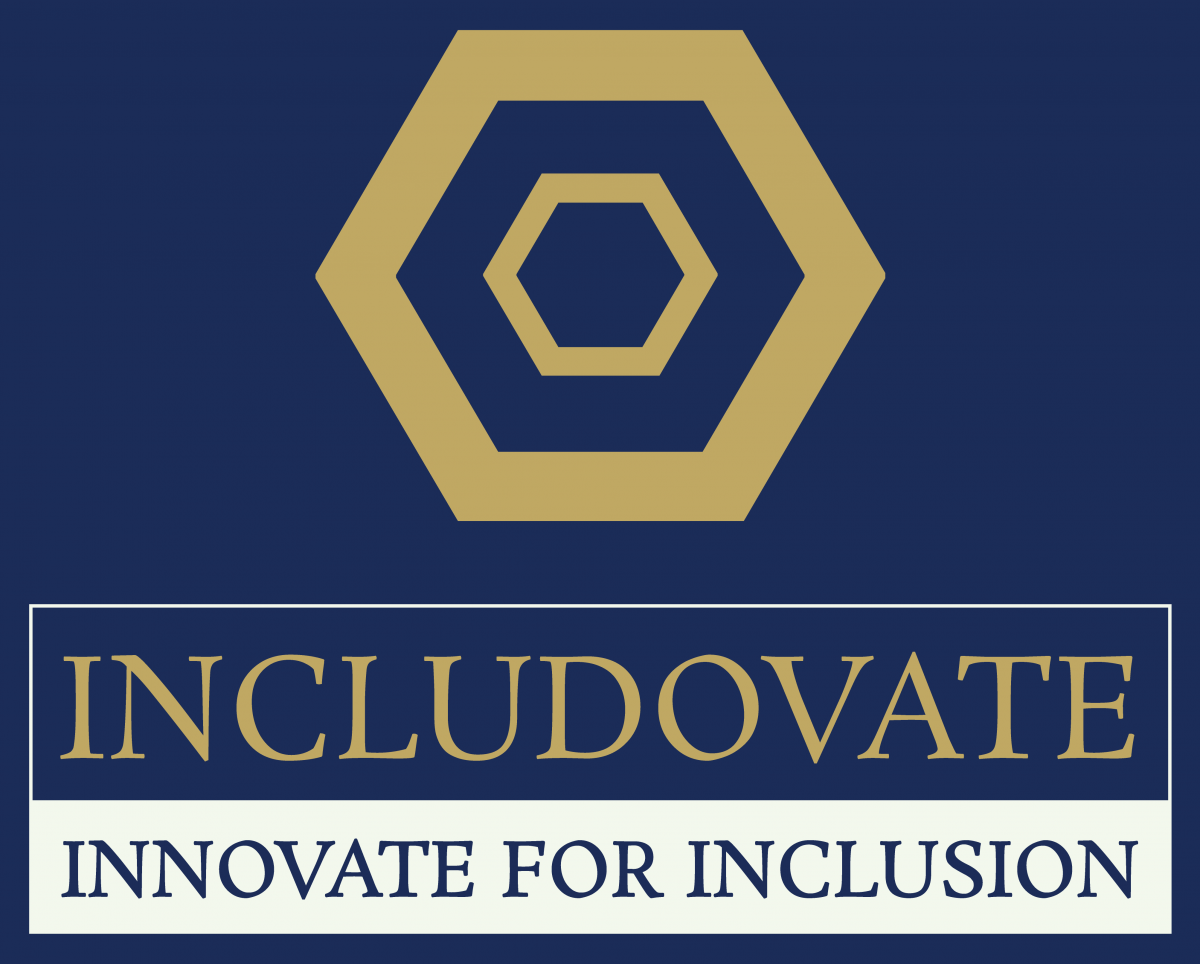 Includovate is a research incubator that designs solutions for inequality and exclusion among other areas. Includovate was established in 2019 to address an identified gap in the market: namely the development of participatory and innovative methodologies to understand the root causes of social exclusion and to develop change processes to support organizations, sectors and communities to tackle these challenges. We are an extensive pool of talented experts – anthropologists, human geographers, sociologists, economists, evaluators, health specialists, and gender and inclusion researchers delivering robust research, conducting evaluations and building capacity for gender equality and social inclusion research and practice. Includovate is 100% female owned and headquartered in Ethiopia and Australia.
Includovate is a research incubator that designs solutions for inequality and exclusion among other areas. Includovate was established in 2019 to address an identified gap in the market: namely the development of participatory and innovative methodologies to understand the root causes of social exclusion and to develop change processes to support organizations, sectors and communities to tackle these challenges. We are an extensive pool of talented experts – anthropologists, human geographers, sociologists, economists, evaluators, health specialists, and gender and inclusion researchers delivering robust research, conducting evaluations and building capacity for gender equality and social inclusion research and practice. Includovate is 100% female owned and headquartered in Ethiopia and Australia.
Indian Journal of Labour Economics (IJLE)
Indian Journal of Labour Economics (IJLE) is one of the few prominent Journals of its kind from South Asia. The Indian Journal of Labour Economics, currently in its 53rd year of publication, is an organ of the Indian Society of Labour Economics. Aimed  at promoting scientific studies in labour economics, industrial relations and related topics. It features peer reviewed articles, research notes, book reviews, documentation and statistical information, particularly in the context of India and other developing countries. The journal includes peer reviewed articles, research notes, sections on promising new theoretical developments, comparative labour market policies or subjects that have the attention of labour economists and labour market students in general, particularly in the context of India and other developing countries.
at promoting scientific studies in labour economics, industrial relations and related topics. It features peer reviewed articles, research notes, book reviews, documentation and statistical information, particularly in the context of India and other developing countries. The journal includes peer reviewed articles, research notes, sections on promising new theoretical developments, comparative labour market policies or subjects that have the attention of labour economists and labour market students in general, particularly in the context of India and other developing countries.
Indian Society of Labor Economists (ISLE)
The Indian Society of Labour Economics (ISLE) is a broad based organization, which promotes comprehensive scientific studies of labour and related matters, provides a forum for free and frank exchange of views on various aspects of labour and related issues among all the people concerned, and disseminates information and knowledge for a wider debate.
It was founded in 1957 by a distinguished group of academicians and public men engaged in promoting the study of labour and industrial relations, The group headed by Shri V.V. Giri consisted of Professors Gyan Chand, Baljit Singh, V.B. Singh, S.D. Punekar, Radha Kamal Mukherjee, C.N. Vakil, P.S. Lokanathan, G.P. Sinha and others. The Society, among others, owes its birth and growth largely to the nurturing care of Shri V.V. Giri, who later became the President of India. Among those who ably assisted Shri Giri in his endeavour was Professor V.B. Singh, who not only edited ISLE’s journal – The Indian Journal of Labour Economics – but remained the kingpin of the organization till he breathed his last in 1978.
Institute for Economic and Social Research, Jinan University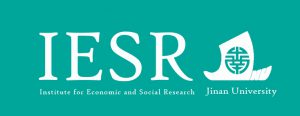
The Institute for Economic and Social Research (IESR) was founded in December 2015 at Jinan University (Guangzhou, China). IESR is dedicated to build a world-renowned research program in applied economics that identifies and understands complex topics of Chinese economics and society. The institute’s research focuses on areas such as labor, education, health, family,environment and urban economics. The institute runs a Survey Data Center, which intends to play a major role in the collection, synthesis and analysis of micro-level data in China. The survey data center has launched several ongoing projects covering topics such as the Chinese labor market, rural-to-urban migration, and the development of children and youth, among others. Our data and research will be used to equip policymakers and practitioners with the information necessary to promote equality and welfare of our society.
The institute is developing partnerships with various world-leading academic institutions and think tanks. The institute also engages in developing high standard graduate programs, including both masters and PhD programs in economics. IESR’s mission is to advance rigorous economic and social research in China, and to make significant contributions to the betterment of our society.
Institute for Economic Forecasting (IEF)
The Institute for Economic Forecasting (IEF) is a Bucharest-based research organization operating under the patronage of the Romanian Academy.
The mission of IEF is to host a hub of academic excellence as a local and regional center aiming to lure competitive research in various areas of applied economics and social sciences.
The Institute’s research programs are oriented both towards theoretical fundamental research on topics such as economic modelling and forecasting, econometrics, macroeconomics, financial markets, various aspects of the labor market and towards empirical and experimental studies.
Institute for Human Development (IHD)
The Institute for Human Development (IHD) was established in 1998 under the aegis of the Indian Society of Labour Economics (ISLE) as a non-profit autonomous institution for conducting studies in the areas of labour and employment, poverty, health and nutrition, education, and other aspects of human development. The Institute has an experienced and active faculty committed to the fulfillment of its vision and objectives. Several well-known scholars, both from India and abroad, are visiting faculty members of IHD. In order to achieve its goals, IHD engages in academic and policy research; policy advocacy; teaching and training; academic and policy debates and dissemination; publication of different forms of literature; and networking with other institutions and various stakeholders. The Institute is one of the “ICSSR-recognised institutes”, a newly created category of Research Institutions by the Indian Council of Social Science Research (ICSSR), Government of India.
Institute of Economic Policy, Università Cattolica del Sacro Cuore Milano
The Institute promotes evidence-based economic research in Economic Policy, Applied Economics, and Management Science. In particular, researchers within the Institute investigate various theoretical and empirical issues in the fields of economic growth, welfare, inequality, labor economics, health economics, economics of innovation, entrepreneurship and peace research.
From a methodological point of view, the Institute is characterized by an open-minded attitude where Evolutionary and Keynesian approaches are considered as relevant as the mainstream; moreover, interdisciplinary research projects are welcome in collaborations with other research institutions within the Università Cattolica del Sacro Cuore and at the national and international Level.
Institute of Global Economic Problems (IGEP)
The Institute of Global Economic Problems is a non-profit, non-governmental organization founded in Baku, Azerbaijan. Its mission is to provide scientists, political 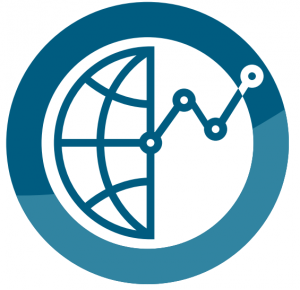 figures and society with true and confident information about the global economic processes, the global social problems, including migration problems, and other problems that affect economic sustainability problems. It aims to organize a live platform for discussions, dialogues, for assisting the exchange of opinions and views. The institute is considering a wide range of cooperation and collaboration with European and World think tanks and institutes. It believes that through tight connections of adequate dialogue between the scientists, organizations, countries and continents it will be able to achieve the goal to help society, the people, to overcome the forthcoming waves of globalization, which undoubtedly will influence everyone. With the help of attracted experts from the fields of sociology and economics, the Institute intends to prepare both theoretical and empirical articles on world social and economic problems. In November 2018, Globin and GLO have signed a MOU about a long-term collaboration to foster research and academic exchange.
figures and society with true and confident information about the global economic processes, the global social problems, including migration problems, and other problems that affect economic sustainability problems. It aims to organize a live platform for discussions, dialogues, for assisting the exchange of opinions and views. The institute is considering a wide range of cooperation and collaboration with European and World think tanks and institutes. It believes that through tight connections of adequate dialogue between the scientists, organizations, countries and continents it will be able to achieve the goal to help society, the people, to overcome the forthcoming waves of globalization, which undoubtedly will influence everyone. With the help of attracted experts from the fields of sociology and economics, the Institute intends to prepare both theoretical and empirical articles on world social and economic problems. In November 2018, Globin and GLO have signed a MOU about a long-term collaboration to foster research and academic exchange.
International Economic Association (IEA)
The International Economic Association (IEA) was founded in 1950 as a Non ![]() Governmental Organization, at the instigation of the Social Sciences Department of UNESCO. It has since its creation maintained information and consultative relations with UNESCO and is since 1973 a federated member of the International Social Science Council. Its aim from the beginning has been to promote personal contacts and mutual understanding among economists in different parts of the world through the organization of scientific meetings, through common research programs and by means of publications of an international character on problems of current importance. GLO is an Associate Member of IEA.
Governmental Organization, at the instigation of the Social Sciences Department of UNESCO. It has since its creation maintained information and consultative relations with UNESCO and is since 1973 a federated member of the International Social Science Council. Its aim from the beginning has been to promote personal contacts and mutual understanding among economists in different parts of the world through the organization of scientific meetings, through common research programs and by means of publications of an international character on problems of current importance. GLO is an Associate Member of IEA.
International Journal of Manpower
The International Journal of Manpower (IJM) is a double-blind reviewed journal provides guidance for those involved at all levels in human resource planning and labour economics. The journal publishes research papers, the results and analysis of which will have implications or relevance to policy makers and practitioners in relevant fields. IJM gives priority to strongly empirical/analytical research papers.
International Network of Business & Management Journal Editors (INBAM)
The International Network of Business & Management Journal Editors (INBAM) is a UK registered charity dedicated to two central objectives: First, of advancing the knowledge of the academic community (and particularly of junior researchers), practitioners and the general public on the subject of research promotion and publishing in journals of business, management and associated social sciences. Second, of supporting and encouraging the education of young researchers, early and later career academics wherever they may live or work, in the development, composition and publishing of their research papers in reputable journals. INBAM brings together its experienced journal editor members and academics researchers in a mutually supportive system of workshops, conferences and training sessions in different countries, especially where the supportive educational framework is in a development phase.
Further information available from: admin@inbam-editors.org
INBAM website: https://www.inbam-editors.org/
International Security and Development Center (IDSC)
ISDC is a Berlin-based, non-for-profit research center conducting research, providing policy advice and building capacity on international security and socio-economic development. While it is increasingly being recognized that security and development are interdependent, there remain significant gaps of knowledge and best practice concerning how to strengthen either and what their relation is to each other. Our lack of knowledge concerns the global, the national, the local and the individual levels. We analyze questions such as: What are the costs of conflict? How does fragility impact on employment? Does poverty breed instability? How to maintain basic human needs in fragile environments? Which institutions build peace and/or prosperity? Can we build peace – and change people’s attitudes to past or potential foes? ISDC draws on data to seek answers to these questions – and thereby to help design better policies for both peace and prosperity. We are unique in the global research scene for being dedicated to work exclusively on the security-development nexus. ISDC is a charitable company acting as a physical hub in a large virtual network of experts and expertise involving researchers, policy makers, practitioners and journalists. While based in Berlin, the global relevance of our work means we engage in research and advisory projects around the world.
advice and building capacity on international security and socio-economic development. While it is increasingly being recognized that security and development are interdependent, there remain significant gaps of knowledge and best practice concerning how to strengthen either and what their relation is to each other. Our lack of knowledge concerns the global, the national, the local and the individual levels. We analyze questions such as: What are the costs of conflict? How does fragility impact on employment? Does poverty breed instability? How to maintain basic human needs in fragile environments? Which institutions build peace and/or prosperity? Can we build peace – and change people’s attitudes to past or potential foes? ISDC draws on data to seek answers to these questions – and thereby to help design better policies for both peace and prosperity. We are unique in the global research scene for being dedicated to work exclusively on the security-development nexus. ISDC is a charitable company acting as a physical hub in a large virtual network of experts and expertise involving researchers, policy makers, practitioners and journalists. While based in Berlin, the global relevance of our work means we engage in research and advisory projects around the world.
International Summer School on Migration and Asylum (Migrationschool.eu)
The International Summer School on Migration and Asylum (Migrationschool.eu) is a high-level training organized every year in Bologna. The School is organized by the Italian NGO Africa e Mediterraneo with the support of a number of international partners and sponsors. Starting from 2018, the Summer School focuses on 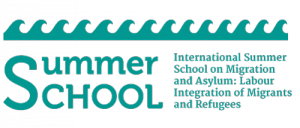 Labour market integration of migrants and asylum seekers, exploring this vast topic from several perspectives, such as: analysis and comparisons of current labour integration policies for migrants and refugees in Europe, certifications and recognition of qualifications, migrants’ self-employment and self-enterprise, and more. Lectures and seminars are integrated with field visits and meetings with experts and professionals working in the field, offering contributions and training on how labour integration of migrants and asylum seekers can be translated into practice in different social and economic contexts.
Labour market integration of migrants and asylum seekers, exploring this vast topic from several perspectives, such as: analysis and comparisons of current labour integration policies for migrants and refugees in Europe, certifications and recognition of qualifications, migrants’ self-employment and self-enterprise, and more. Lectures and seminars are integrated with field visits and meetings with experts and professionals working in the field, offering contributions and training on how labour integration of migrants and asylum seekers can be translated into practice in different social and economic contexts.
Journal of Population Economics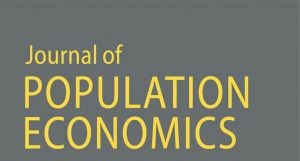
International Research on the Economics of Population, Household, and Human Resources: the Journal of Population Economics is an international quarterly that publishes original theoretical and applied research in all areas of population economics. The journal is published by Springer and administered by POP at UNU-MERIT and the Global Labor Organization (GLO).
Michael Imoudu National Institute for Labour Studies (MINILS)
Michael Imoudu National Institute for Labour Studies (MINILS) is Nigeria’s only tripartite national institute for labour education. The institute is involved in several activities in the areas of training, research, education, publication and consultancy in labour, employment and work related issues. The Institute undertakes extensive initiatives aimed at building the capacity of workers and their union; promoting exchange between Industrial relations parties in the interest of Industrial harmony; developing international linkages to encourage best practices and global solidarity and; advancing the frontiers of knowledge on labour matters.
Migration Policy Practice
Migration Policy Practice is a bimonthly journal published jointly by the International Organization for Migration (IOM) and Eurasylum. It contributes mainly articles from, and is overseen by, senior officials in Government, EU institutions and international organizations, working in the field of migration policy. Past authors have included, inter alia: António Guterres; Martin Schulz; Ambassador Eva Åkerman Börje; Sir Peter Sutherland; Cecilia Mamlström; Ambassador William Lacy Swing; Najat Maalla M’Jid; Kelly Ryan; Myria Vassiliadou, and a number of other prominent senior officials. Migration Policy Practice also publishes occasionally articles by reputable policy-driven academics.
National Institute of Demographic and Economic Analysis (NIDEA)
The National Institute of Demographic and Economic Analysis (NIDEA) undertakes population research to help inform choices and responses to the demographic, social and economic interactions that are shaping New Zealand’s future. It does this by:
- modelling the effects of demographic and economic change at global, regional and national scales on long-term social transformation, competitiveness and productivity;
- conceptualising, measuring and evaluating options for enhanced wealth creation and general wellbeing in an increasingly diverse, ageing society;
- researching migration and the transnational dimensions of New Zealand’s population and economy in Oceania;
- enhancing understanding of the patterns, causes and consequences of regional social, economic, and ethnic diversity and disparity within New Zealand;
- examining trends, causes, and effects of health and disease conditions in defined populations, as well as a wider focus on health equity and health and social inequalities.
Population, Education and Health Center (PEHC)
The Population, Education and Health Center (PEHC) at the University of Missouri is a research center dedicated to promoting cutting edge, population-level research that uses non-public microdata. Through training, research and dialogue, the PEHC promotes interdisciplinary collaboration among faculty who conduct national and international population, education and health Research. The PEHC was part of a successful proposal to the National Science Foundation and the U.S. Bureau of the Census, and is home to the University of Missouri Research Data Center (MU RDC). The MU RDC is part of the part of the Federal Statistical Research Data Center program and provides a secure environment where researchers have access to restricted use datasets for research in economics, sociology and public health. To promote research using RDC data, the PEHC offers competitive Small Grant awards and Interdisciplinary Doctoral Fellowships. The PEHC also hosts a lively seminar series offering speakers from the University of Missouri and from other institutions, providing an opportunity for multidisciplinary exchange. The PEHC was made possible through funding provided by University of Missouri.
POP – Centre for Population, Development and Labour Economics
POP, the Centre for Population, Development and Labour Economics is an independent economics research group at UNU-MERIT and the Maastricht Graduate School of Governance. Defined broadly POP covers research on global labour markets, demographic challenges and human resources in developed and developing countries. Within these areas POP focuses specifically on employment, development and migration. POP generates high-quality and policy-relevant research and research-collaboration activities involving leading international scholars. Furthermore, it aims to provide evidence-based policy advice and to disseminate research results and the resulting implications for policy and society to the wider public.
POP at UNU-MERIT hosts the Journal of Population Economics, an international quarterly that publishes original theoretical and applied research in all areas of population economics.
RePEc
RePEc (Research Papers in Economics) is a collaborative effort of hundreds of volunteers in 89 countries to enhance the dissemination of research in Economics and related sciences. The heart of the project is a decentralized bibliographic database of working papers, journal articles, books, books chapters and software components, all maintained by volunteers. The collected data are then used in various services that serve the collected metadata to users or enhance it.
So far, over 1,800 archives from 89 countries have contributed about 2 million research pieces from 2,300 journals and 4,300 working paper series. About 48,000 authors have registered and 75,000 email subscriptions are served every week. See here on how you can be part of this initiative.
Society of Economics of the Household Economics
The Society of Economics of the Household (SEHO) shares the goals of the Review of Economics of the Household and promotes empirical and theoretical research on the economic behavior and decision-making processes of single and multi-person households. The journal and the society emphasize economic analyses on the effects of policy instruments on household decisions, macroeconomic applications, and research on economic development. Not wedded to particular models nor methods, REHO and SEHO foster high quality research using a variety of approaches. Household decisions analyzed include consumption, labor supply and other uses of time, household formation and dissolution, demand for health and other forms of human capital, fertility and investment in children’s human capital, demand for environmental and other public goods, migration, demand for religiosity, and decisions by agricultural households.
University of Kent
University of Kent (UoK), the UK’s European university, is a public research university  based in Kent, United Kingdom. It’s main campus is in Canterbury as well as campuses in other parts of Kent and European postgraduate centres in various European cities. The University is committed to rigorous research and excellent education; it is international, with over 20,000 students from about 160 nationalities and about 40% of international academic staff. It provides GLO with a local platform in the UK through its School of Economics. See the announcement at the UoK website.
based in Kent, United Kingdom. It’s main campus is in Canterbury as well as campuses in other parts of Kent and European postgraduate centres in various European cities. The University is committed to rigorous research and excellent education; it is international, with over 20,000 students from about 160 nationalities and about 40% of international academic staff. It provides GLO with a local platform in the UK through its School of Economics. See the announcement at the UoK website.
WageIndicator Foundation
Global, more than 140 countries. International comparable Minimum Wages, Living Wages, actual wages, wages in Collective Agreements (CBA). International comparable Labour Laws. Providing basic knowledge for all in a labour market: trade unions, employers, both for formal and informal sector. Mapping the national labour market, specially in these countries where information is not on paper or digital.
WageIndicator Foundation and GLO collaborate to promote a strong WageIndicator operation in all countries and provide access to this data.
ZBW – Leibniz Information Centre for Economics 
The ZBW – Leibniz Information Centre for Economics is the world’s largest research infrastructure for economic literature, online as well as offline. Its disciplinary publication server EconStor provides a large collection of more than 120,000 articles and working papers in Open Access. EconBiz, the portal for international economic information, allows students and researchers to search among nine million datasets. The ZBW edits two journals in economic policy, Wirtschaftsdienst and Intereconomics, and in cooperation with the Kiel Institute for the World Economy produces the peer-reviewed journal Economics based on the principle of Open Access. The ZBW is a member of the Leibniz Association and has been a foundation under public law since 2007. Several times the ZBW received the international LIBER award for its innovative work in librarianship.
